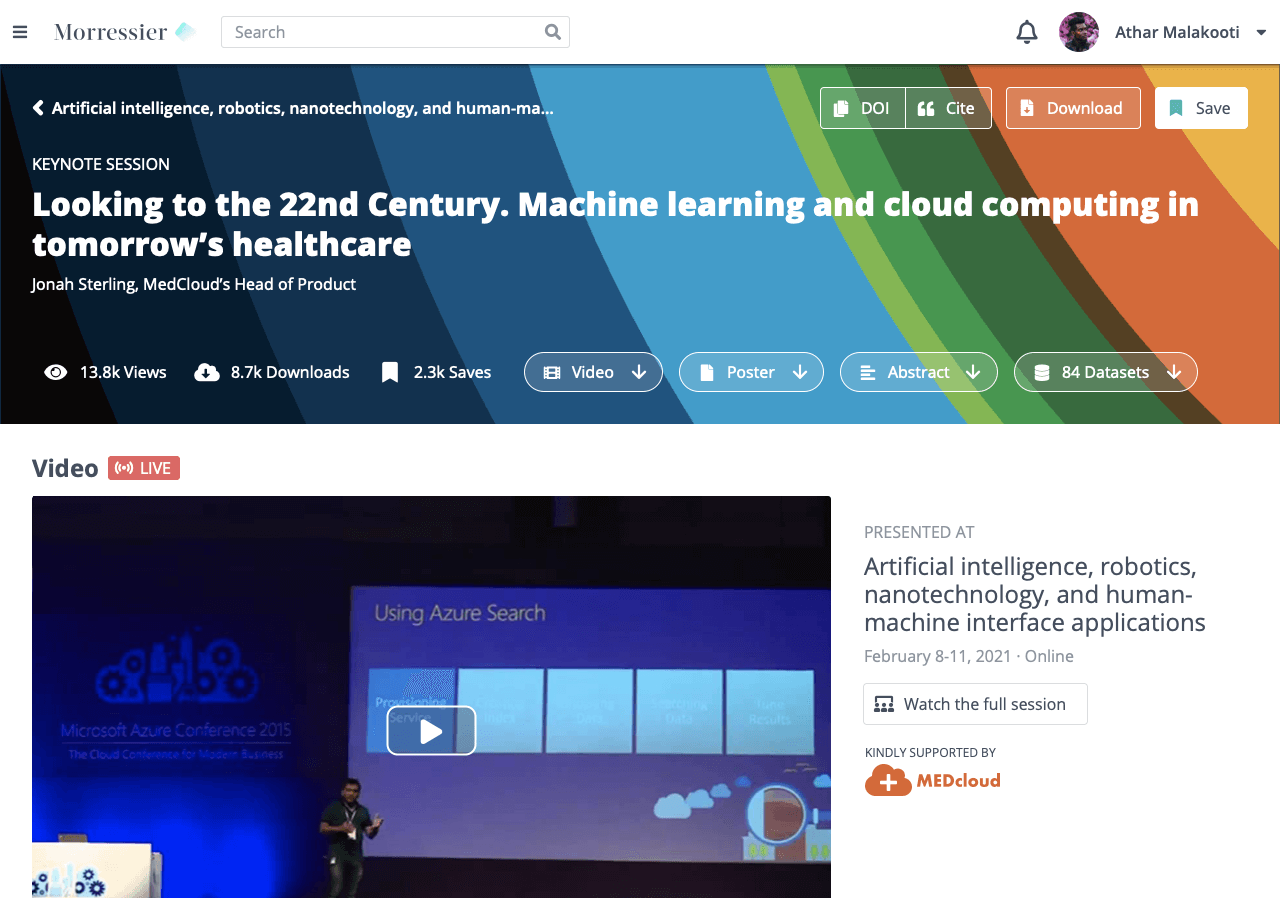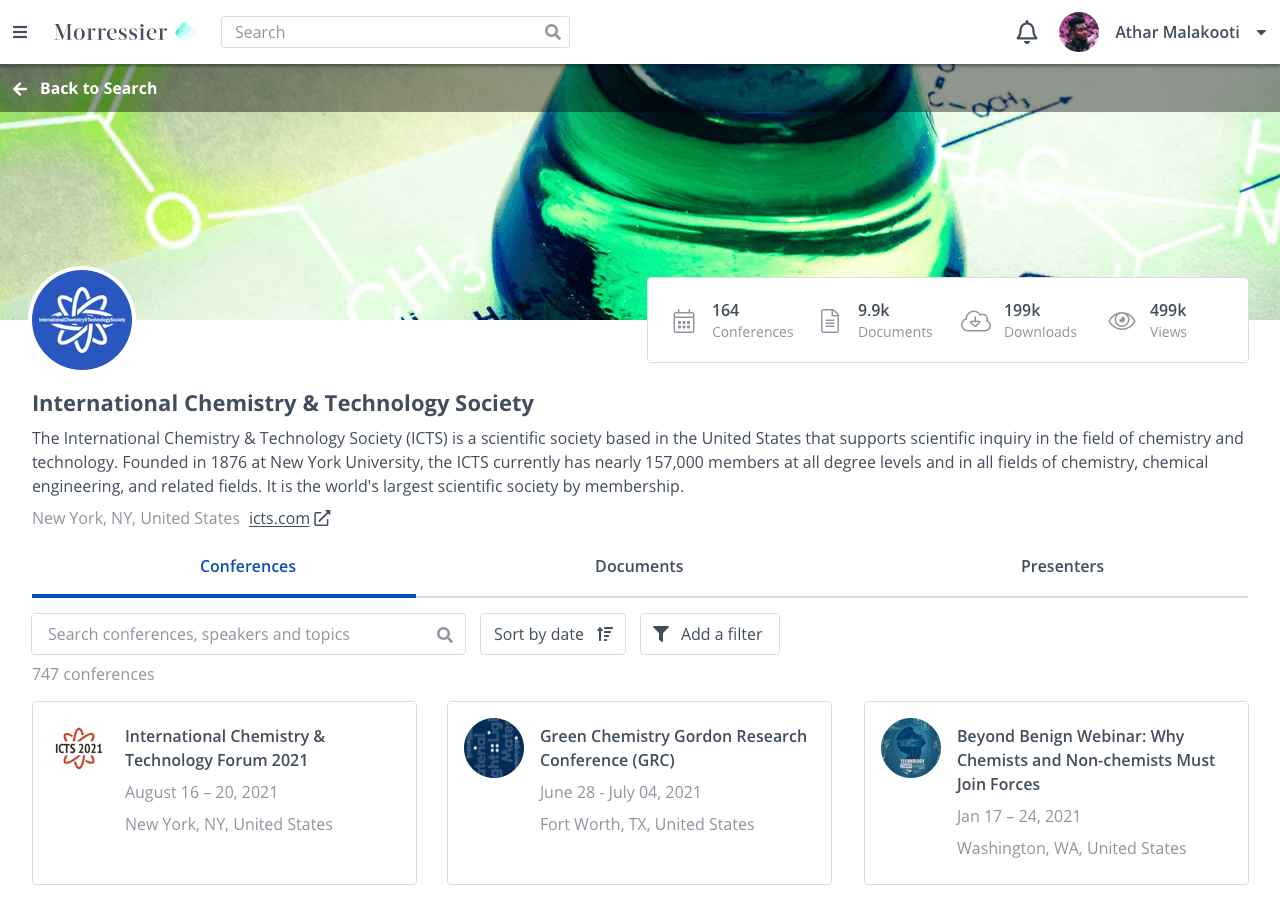Morressier wants academic conferences to feel cutting edge
While a unicorn named Hopin tends to dominate the virtual conferencing space, a new startup just raised millions of dollars by focusing on what it believes is an untapped niche in the same universe: academic conferences.
Morressier, a virtual conference and publishing platform specifically for the scientific community, announced today that it has raised $18 million in a Series A round led by Owl Ventures. Existing investors Cherry Ventures and Redalpine Venture Partners also participated in the round.
Founder Sami Benchekroun spent a lot of time at medical and scientific conferences while growing up thanks to his parents, who were both pursuing careers in medicine. Eventually, he began recognizing a pattern between all of the conferences.
People from around the world would come together and literally bring physical content like printed out posters [or] a presentation on USB keys, to these conferences, but after the three days, all that content is lost," he said. All the people [who] are working on cancer research and HIV research are coming to these conferences completely offline, sharing the ideas, and then everything is lost."
The irony of it was distracting so, in 2014, he began trying to digitize the early exchange of knowledge at a conference.
Democratizing sounds cheesy but it's really that," he said. People from Africa or Asia have no chance to really get access to these really high profile conferences that are mainly happening in the States or Europe, so by actually making everything digital, we can give back."
The company began with a focus on content ephemerality, and nearly 7 years later, Morressier has built an end-to-end software layer that it hopes makes the academic conference experience as cutting edge as the research within it.
First, Morressier works with a society to create a landing page for an upcoming conference. Researchers can apply there to present their research at said conference. Morressier then aggregates all the research submissions and begins conducting a peer review process, with academics from the society validating the research and deciding if its relevant. The peer review process can often happen offline on excel sheets and word documents, so Morressier helps move the entire operations online. Once the peer review is done, the startup creates a content library to go along with a virtual or in-person conference where it can live indefinitely.
Finally, it gets to hosting the dissemination of that content to giving post-event analytics to event hosts to understand how research is being consumed.
In order to make a compelling, end to end solution for every society out there, we added that live stream video component only in the beginning of 2020," he said.

Morressier has over 700,000 accounts on its service, and has held conferences with the American Chemical Society and the Society of Photo-optical Instrumentation Engineers among others. The company makes money by working directly with the societies and charging them a flat fee for using the platform conference organization and managing their peer review process. It also has a per document-based fee structure so as more research is uploaded to its database, Morressier makes more money.

Image Credits: Morressier
While growth is the obvious next step for the freshly-funded company, Morressier hasn't been exactly sluggish in the meantime. The company had 6x growth in number of authors and 13x growth in number of documents on its platform, bringing on $4.5 million in sales in 2020. The early-stage startup began 2020 with a 28-person staff, and plans to grow to 100 people by the end of 2021.
The founder, of course, accounts part of this growth to the pandemic, which took down some of the natural red tape that exists in education.
I always try to play this down but quite frankly, in research and education, unfortunately things take longer [because of] government structures," he said, of adoption speed. Indeed, the company took four years to raise its first check due to development. Now, three years after that, Morressier has closed another tranche of capital, thanks to a global understanding that virtual events are the future. Now, it's just time for Morressier to prove its pandemic bump has paved a way for it to become a high-growth business.